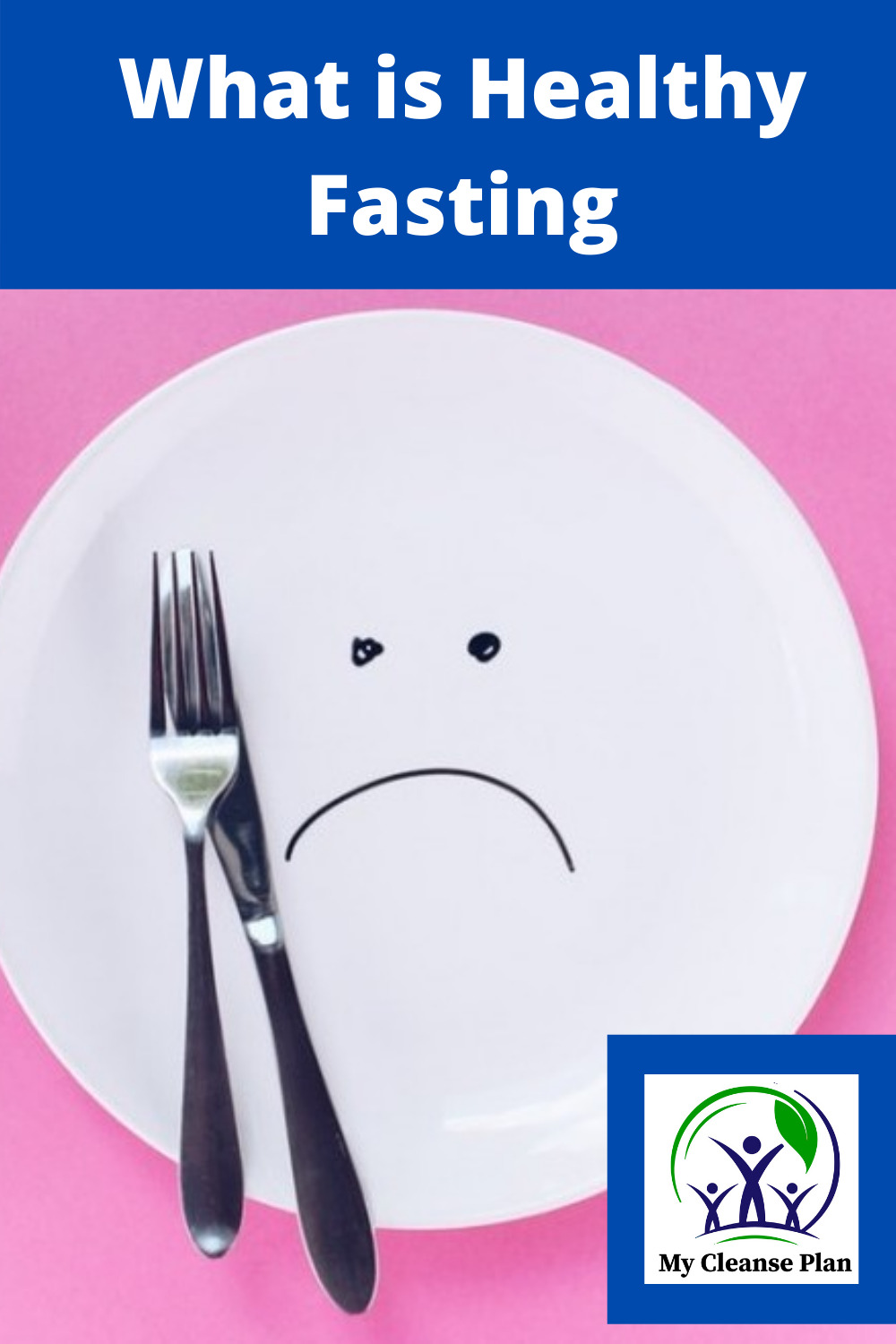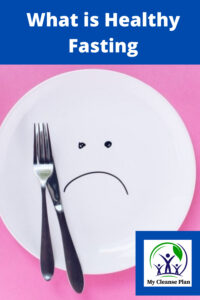What is Healthy Fasting: Benefits and Dangers
Fasting is a time period where no food or water is eaten or drink by the person who observes fast. People usually fast for spiritual, religious, or health reasons.
Fasting is also referred to as a religious obligation in many religions of the world. As a religious obligation, fasting means to refrain from eating or drinking for a known time period.
Fasting is of several kinds; mostly kinds of fasts go constant in which you have to stop eating or drinking for straight 10-72 hours. Following are different types of fasting:
- Religious fasting
- Intermittent fasting
- Liquid fasting
- Juice fasting
- Fasting for medical conditions
What Is Fasting
Fasting has been an old and very common practice for many centuries. It plays a central role in many traditional and religious values.
Fasting controls our body storage and energy-producing system.
Fasting may limit you from eating or drinking but it is generally not harmful to you. It has also become a popular way to maintain health and to gain a healthy lifestyle.
Health Benefits Of Fasting
Some of you might think that when you stop eating cannot be good for you, but the reality contradicts this.
When you stop eating and drinking, this can do wonders for your body systems. Following are some health benefits of fasting:
1: Increases Lifespan
Fasting initiates a process inside your body system, in which cells can recycle themselves by eliminating toxicants.
So your body can function in the best way by getting rid of useless materials inside the body. It is like an anti-aging system of cells where the cells renew and refresh to start a new life.
Through fasting, you can effectively slow down your aging process inside your body that is better for you physically and internally.
2: Improves Body Resistance to Stress
Many of us have stress or anxiety problems in our life. There is not a known reason for stress discovered and sometimes excess anxiety or stress can have a dangerous effect on your overall physical or mental health.
Now fasting has been proved as an excellent way to resist stress issues.
As free radicals or unstable molecules inside the body play a part in causing stress. These molecules carry reactive electrons that react with other molecules and thus change the energy level of certain cells which causes your bodies more stress.
Fasting makes your cells gain energy from other sources that you could miss on your normal days.
During fasting, the internal system goes to survival mode and replaces the bad cells with the healthier ones. After few days of fasting, the lesser free radicals will be formed inside the body and your cells will get enough energy to fight off free radicals that cause stress.
All this procedure helps in maintaining chemical balance inside the body and your body would be able to resist stress.

3: Enhances Brain Functionality
During normal eating days, constant eating could be bad for brain function. The food goes into overdrive and over-activity of the brain can be harmful.
In that case, the brain cannot focus on everything by keeping a balance.
As mentioned earlier, fasting puts on the survival mode of the body that makes the brain focus on certain tasks.
The changes in the brain from fasting are as same as exercising effects. Your brainpower increases remarkably for a long time period after fasting.
4: Aid in Preventing Cancer
Fasting helps in getting rid of body toxins is a known fact but cancer?
Yes, it is possible too. It might not prevent you entirely from getting cancer but it can surely help in preventing tumor growth or spreading of cancer.
Pus, during chemotherapy patients, are suggested to observe intermittent fast which helps the body to suppress side effects of treatment.
Cancer starts with targeting toxic cells but when all the toxins are removed as a result of fasting then there is very little chance of cancer to hit those cells.
5: Improves Immune System
That is another great benefit of fasting to our bodies.
It helps our body to eliminate causes of common sickness before it starts.
You do not have to worry about getting seasonal diseases if you are following your fasting routine.
When cells are regenerated due to fast then it also improves the cells of the immune system and makes them work more efficiently. It cleans up you whole system which results in better health condition and more power to fight germs.

6: Helps in Weight Loss
That is an obvious outcome of fasting. Once you are able to control the eating routine then your weight will automatically get reduced to a normal point.
You might plan to eat up a lot after you are done with your fast but you cannot eat a lot. The reason behind that is that during the fast your stomach creates a limited ability for food intake and you cannot cross that limit.
Dangers Of Fasting
Well, you all know that everything has 2 sides, good and bad. Now you are well aware of the advantages of fasting, let’s find out what dangers are expected from fasting?
1: It Can Lead to An Eating Disorder
You might have heard that excess of everything is bad. Well, this is the same case here.
Extreme fasting can lead you to a dangerous eating disorder. People who already suffer from eating disorders should avoid observing fasts.
2: Health Risks for Women:
Fasting can cause a disturbance in women’s hormones which causes the following health issues to women:
- Change in metabolism
- Missing periods
- Early menopause
3: Other Health Risks:
Due to prolonged fast timings, we can damage our bodies internally. Following are the health risks related to prolonging fasting:
- Pancreas damage
- Increases level of cholesterol
- Increases risk of diabetes by disabling insulin function
- Irregular heartbeat
- Headache due to hunger
- Fainting
- A decrease in energy level
It is suggested to keep your fasting routine according to your body’s capability.
People Who Should Avoid Fasting
Following people should avoid fasting for any reasons:
- Malnourished people
- Breastfeeding or pregnant women
- Growing children
Fasting comes with various benefits but there are also some drawbacks that you should know about. Considering your demands, fasting can improve your health.
Explore Also:
Creativehouseblog
Dietsheriff
Gigasecurehome
Final Thoughts on Fasting
As you can see, fasting has many advantages and a few disadvantages. Like anything, when used correctly, fasting can be very beneficial.
You can learn more about fasting the right way from several good books available on Amazon.
If you have any concerns about fasting, please discuss this with your doctor. They will have a better idea of how fasting may benefit your specific needs.
Here is a PIN you can share with your friends on Pinterest:












I’m wondering, in your opinion, what would healthy fasting look like in a diet or attempt to cleanse the body? Unless for a specific religious reason, I can’t see a good reason to limit your intake of fluids like water.
Hi Lauren,
That was one of my concerns when I started reading about fasting. I thought that if you did not consume food that would mess with your metabolism and if you did not drink water, then how would you flush toxins from your body.
There were a few articles on The National Institutes of Health’s site that covered a lot about fasting for weight loss and diets. One article mentioned:
“In healthy, normal weight, overweight, or obese adults, there is little evidence that intermittent fasting regimens are harmful physically or mentally (i.e., in terms of mood).
It appears that almost any intermittent fasting regimen can result in some weight loss.“NHI
Intermittent fasting can be safe if done correctly.
Thank you for you comment,
Jim